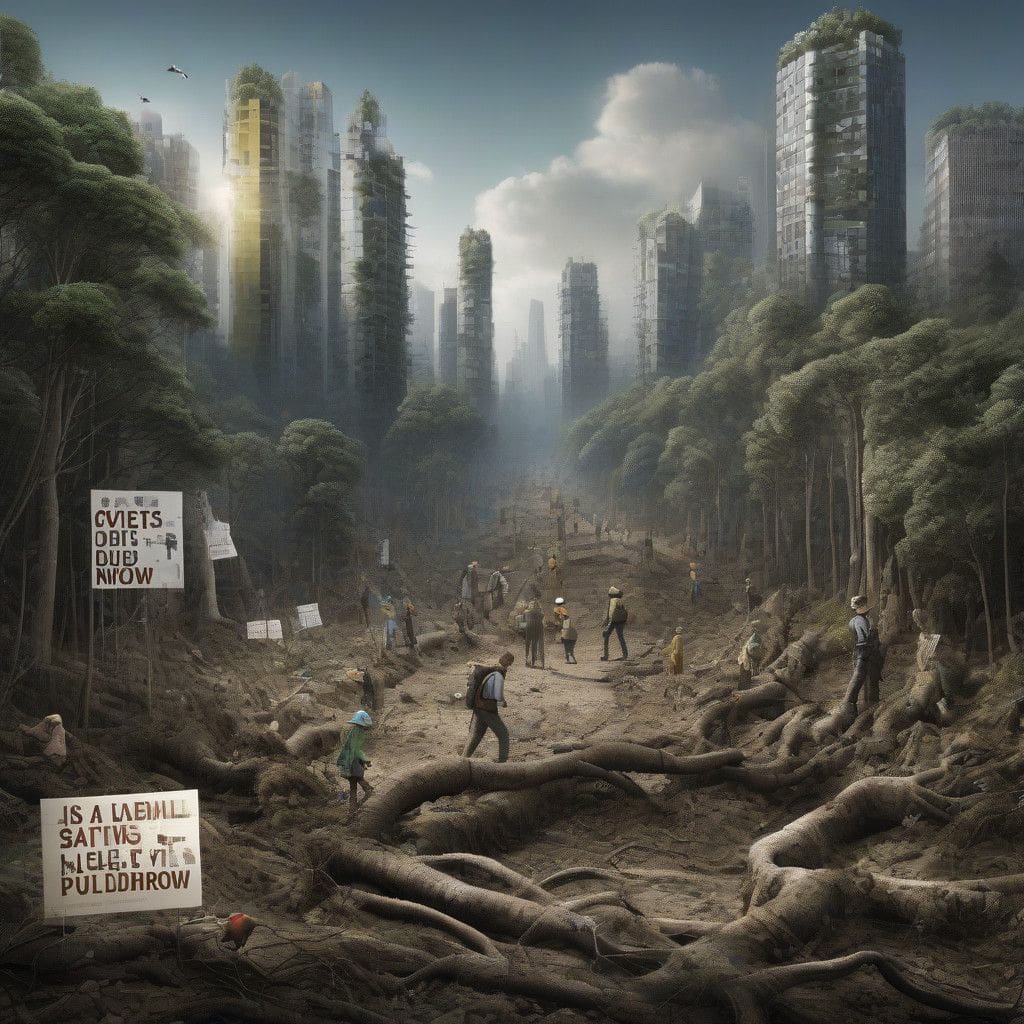In a significant policy shift, the European Commission has proposed a 12-month delay on a landmark regulation intended to combat global deforestation. This decision comes amidst mounting pressure from agricultural producers and industry stakeholders, particularly from nations that export vital commodities such as coffee, cocoa, soy, and beef to the EU.
Initially slated to take effect on December 30, the regulation aimed to discourage deforestation by establishing strict guidelines for importers. These guidelines required importers to implement complex tracking systems to verify that products were not sourced from lands deforested or degraded after 2020. However, the impending deadline has awakened concerns among foreign nations and local industries regarding their readiness to comply, prompting the commission to acknowledge these apprehensions.
The Commission’s statement reflects an awareness of the uneven preparedness among stakeholders in Europe and their global partners notable in this instance. Carlos Mera, an analyst at Rabobank in London, stated that this delay could alleviate immediate pressures on the EU’s supply chains. Commodities heavily affected include cocoa and palm oil, which are crucial not only for exporters but also for consumers impacted by the ongoing cost-of-living crisis.
Despite the regulatory objective to protect forests, the initial framework has drawn fierce criticism, particularly from agricultural giants like Brazil and Indonesia. Stakeholders from these countries argued that the proposed legislation, if enforced, would undermine small holder farmers and severely impact their export capabilities. The European Commission’s decision has, therefore, been perceived by some as a retreat from its commitment to environmental protection, marking a setback for the EU’s green agenda.
While the delay provides breathing room, environmental advocates have expressed deep dissatisfaction. They regard this postponement as a harmful retreat, potentially leading to greater deforestation and neglect of environmental responsibilities. As Sébastien Risso, Greenpeace’s EU Forest Policy Director, lamented, the decision grants a reprieve for products linked to deforestation to occupy European supermarket shelves—an outcome that runs counter to the very goals the EU sought to promote.
The complexities inherent in the new regulation cannot be understated. Importers must create intricate tracking mechanisms to identify the precise geolocation of the lands where commodities were cultivated. This necessity for accurate documentation has led to widespread alarm, particularly among European traders who are now stockpiling anticipated commodities before the deadline. The state of the market mirrors these concerns, as cocoa and coffee prices have surged due to harvest shortfalls and ongoing supply chain disruptions, amplifying fears of food inflation across Europe.
For instance, recent trends on commodity exchanges showcase fluctuations: robusta coffee futures declined around 6%, while soybeans and cocoa prices tightened. This volatility underscores the immediate economic ramifications of both climate regulations and the global agricultural landscape’s instability.
Yet, amid these tumultuous developments, there are also voices promoting a balance between sustainability and economic sensibility. German Farmers’ association DBV welcomed the proposed postponement. Its Secretary-General, Bernhard Krüsken, emphasized that regulatory bodies must strive for simplification and clarity rather than increase bureaucratic complexities, especially for nations already practicing effective forest conservation.
Critics remain cautious, predicting that a lack of decisive measures could lead to future economic and environmental chaos. Peter Liese, a German lawmaker in the European People’s Party, highlighted potential legislative chaos that a rushed rollout could instigate. He expressed confidence that a formal adoption of this delay would garner support quickly, allowing for more time to establish feasible frameworks that consider both environmental challenges and agricultural realities.
This development exemplifies the balancing act contemporary regulations must navigate as they attempt to serve often conflicting interests: environmental sustainability versus economic stability. It reflects a broader trend where urgency in climate action must be measured against the backdrop of domestic and international economic pressures.
Moving forward, 2024 promises to be a pivotal year as stakeholders on both sides of this complex debate seek to negotiate a path that aligns economic practices with environmental stewardship. With a prolonged deadline in place, it is crucial for all stakeholders to actively engage in discussions that aim to bridge the gap between regulatory ambitions and practical realities.
Production and consumption patterns may need reevaluation, and a collaborative approach that includes voices from both environmentalists and agricultural producers may pave the way for sustainable practices that respect both nature and socio-economic structures.












